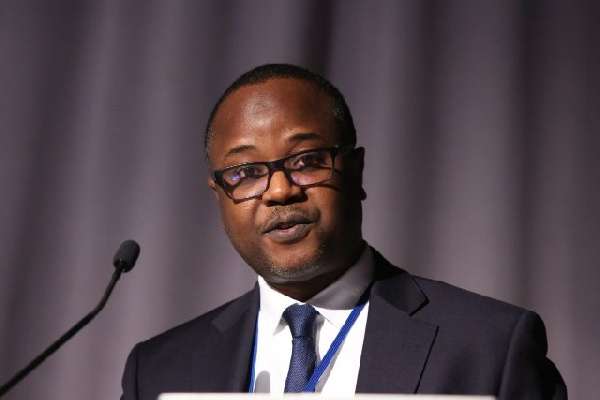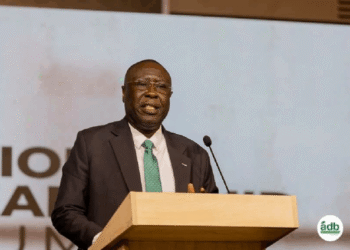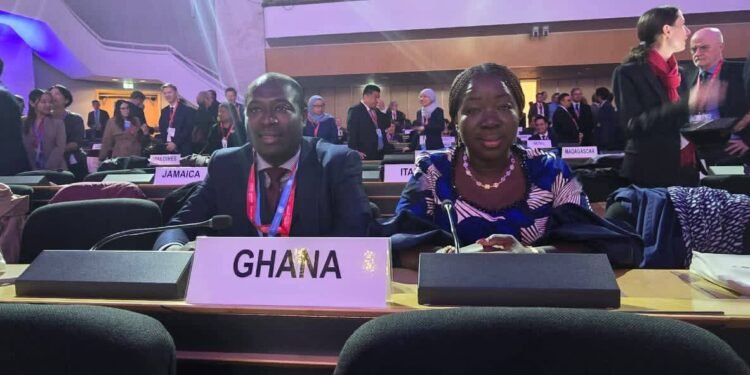Dr Maxwell Opoku Afari, the First Deputy Governor of the Bank of Ghana (BoG), has iterated the apex bank’s commitment to further the financial inclusion agenda in the country.
According to the First Deputy Governor, as part of BoG’s agenda, the Bank of Ghana has engaged players in the financial space to address possible threats to the sector in order to achieve a sound and safe financial system. “To this end, the Central Bank is committed in ensuring that its financial inclusion agenda is achieved in no time.”
Dr Maxwell Opoku Afari indicated that the Bank of Ghana, through digital financial services is promoting financial inclusion and bringing the unserved and underserved segment of the society into the financial system.
“Ghana’s recent remarkable performance in financial inclusion from 58 per cent in 2017 to 68 per cent in 2021 as reported in the 2021 Global Findex has been largely facilitated by digital financial service.”
Dr Maxwell Opoku Afari
Dr Afari stated that the emergence of new technology has fueled the digitalisation drive in the Ghanaian financial services industry with tremendous impact on efficiency and convenience. He indicated that to meet the changing needs of customers as well as address the challenges of the industry called for pragmatic and innovative solutions that confront the status quo.
“I must state that innovation and retooling of regulatory framework are not new to the Bank of Ghana. In fact, the bank has been at the forefront of innovation in the financial service industry for decades.”
Dr Maxwell Opoku Afari
Passage of the Payment Systems Act 2003
Dr Afari indicated that the passage of the Payment Systems Act 2003(Act 662) in 2003, which had culminated in the establishment of the Ghana Inter-bank Payment and Settlement System infrastructure and the promotion of electronic payments laid a strong foundation for digital financial service in Ghana.
“Since then, many more innovations and corresponding enabling regulatory regime have been provided, of which Act 987 is the most recent. Clearly, these and many commitments, including the regulatory sandbox are evidence of the Bank’s response to the prevailing industry dynamics and encourage stakeholders to take advantage of the opportunities Bank of Ghana has presented to inject some dynamism into their offerings through innovation.”
Dr Maxwell Opoku Afari
As part of the efforts, the Ministry of Finance recently launched three policy initiatives designed to deepen financial inclusion and accelerate the shift to digital payments. As part of the launch, the Ministry presented the government’s vision of building a highly digitized payment system that accelerates economic development and drives inclusive growth.
The National Financial Inclusion and Development Strategy, which was also developed in collaboration with the World Bank, aims at increasing financial inclusion from currently 58 percent to 85 percent by 2023, helping create economic opportunities and reducing poverty.
Another policy developed was the Digital Financial Services Policy. It was developed in partnership with the Consultative Group to Assist the Poor (CGAP), builds on existing technological gains to create a resilient, inclusive and innovative digital ecosystem that contributes to social development, a robust economy and a thriving private sector.
READ ALSO: DBG to Join Forces with GIRSAL to train Staff of Financial Institutions on Agric Financing























